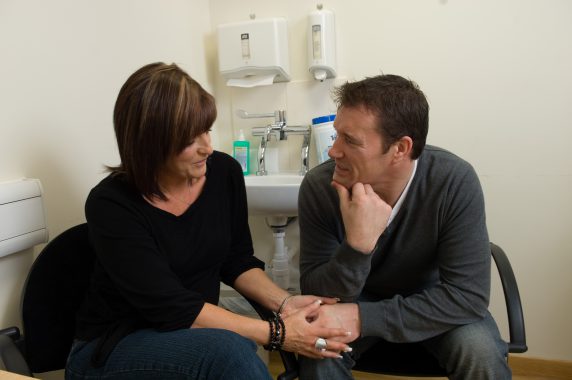Some 700 new mental health specialist GPs should be trained up and working in the NHS over the next five years, recommends an independent review of mental health in England.
The Mental Health Taskforce report – published today – recommends that all GPs receive ‘core mental health training’ by 2020/21 and recommends the introduction of hundreds of new ’GPs with an extended Scope of Practice in Mental Health’ or ‘GPwERs’.
The landmark report – commissioned to look at the mental health care that the NHS provides in England – also recommends practices are given the ‘time they need’ to carry out thousands more physical health checks in patients with mental health problems.
The NHS in England says it intends to invest over £1bn a year of additional funding in mental health care by 2020/21 to reach one million more people.
But mental health services have suffered years of cuts, with Pulse revealing that child and adolescent health services in particular were finding it hard to cope with reduced funding, leaving GPs to cope with diagnosing and treating mental health disorders outside their level of competance.
In July 2014, Pulse reported that a fifth of GPs have seen patients come to harm as they were unable to access appropriate support from their community mental health teams, with some patients committing suicide, being sectioned or admitted as a result.
The taskforce report found that the rate of suicides was rising after many years of decline, with suicide now the leading cause of death for men aged 15 to 49. Many were found to to have contacted with their GP or other health services before their deaths.
The report recommends a ‘fresh mindset’ in the health service, prioritising mental health as much as physical health and says there should be a ‘major drive’ to reduce suicide by 10% by 2020/21.
It also recommends a dramatic widening of access to psychological therapies for people with common mental health problems, from 15% of adults in need to 25% by 2020/21.
It also recommends the introduction of a new grade of GP: ‘The Department of Health and NHS England should work with the RCGP and HEE to ensure that by 2020 all GPs, including the 5,000 joining the workforce by 2020/21, receive core mental health training, and to develop a new role of GPs with an extended Scope of Practice (GPwER) in Mental Health, with at least 700 in practice within five years.’
It adds that GPs and ambulance staff were considered one of the ‘most caring’ health professionals according to patients with mental health problems, but that practices needed to do more to look after the physical health of patients in this group.
It says: ‘NHS England should also lead work to ensure that by 2020/21, 280,000 more people living with severe mental illness have their physical health needs met by increasing early detection and expanding access to evidence-based physical care assessment and intervention.
‘This will involve developing, evaluating and implementing models of primary care whereby GPs and practice nurses take responsibility for delivering the full suite of physical care screenings, outreach, carer training and onward interventions or referrals, in line with NICE guidelines.
‘This model should include outreach workers or carer training to support people to access primary care because many people with psychosis struggle to access services, and give GPs and practice nurses the training and time they need to deliver NICE concordant screening and care.’
Responding to the report, NHS chief executive Simon Stevens said that the health service was ‘committed’ to pursuing the aims of the report: ‘Putting mental and physical health on an equal footing will require major improvements in seven day mental health crisis care, a large increase in psychological treatments, and a more integrated approach to how services are delivered.’
Prime Minister David Cameron said: ’For too long there hasn’t been enough focus on mental health care in this country meaning too many have had to suffer in silence. The taskforce has set out how we can work towards putting mental and physical healthcare on an equal footing and I am committed to making sure that happens.’
RCGP chair Dr Maureen Baker said the report was ‘ambitious and admirable’ and she repeated her call for all practices to have direct access to mental health workers. She added: ‘This way our patients can access these important and effective services when they need them, not 28 days or more later, as is currently often the case.’
Pulse October survey
Take our July 2025 survey to potentially win £1.000 worth of tokens













